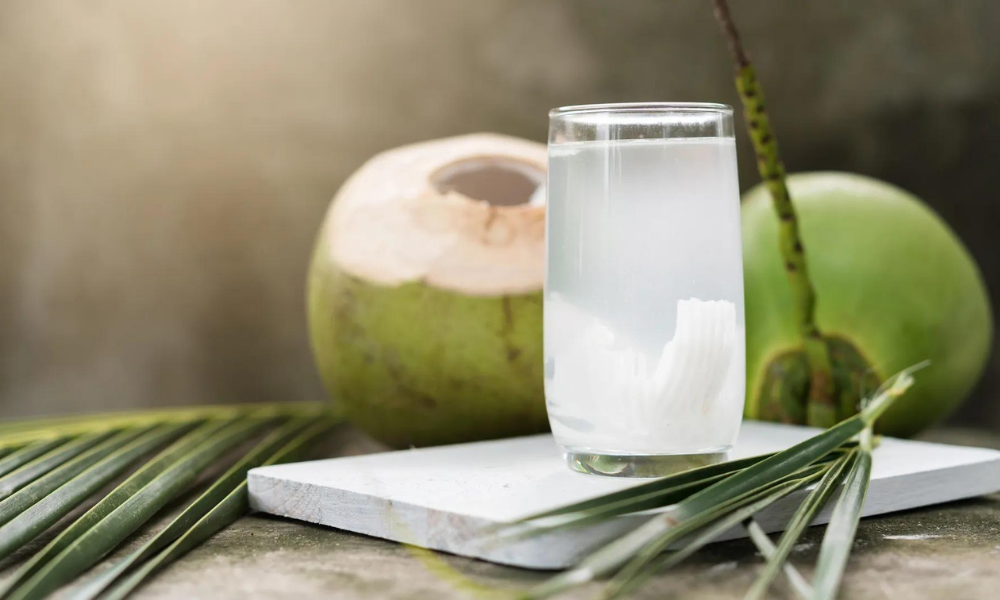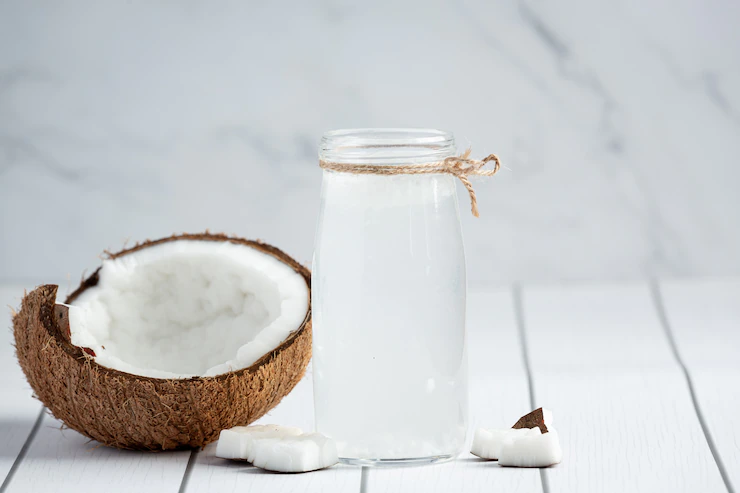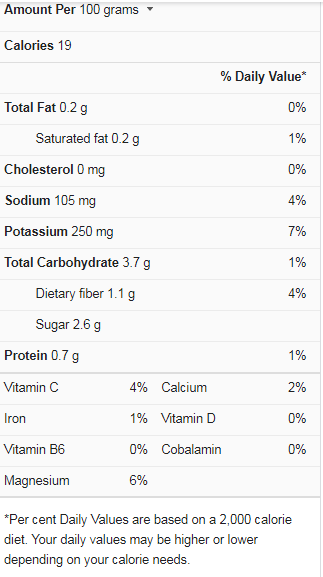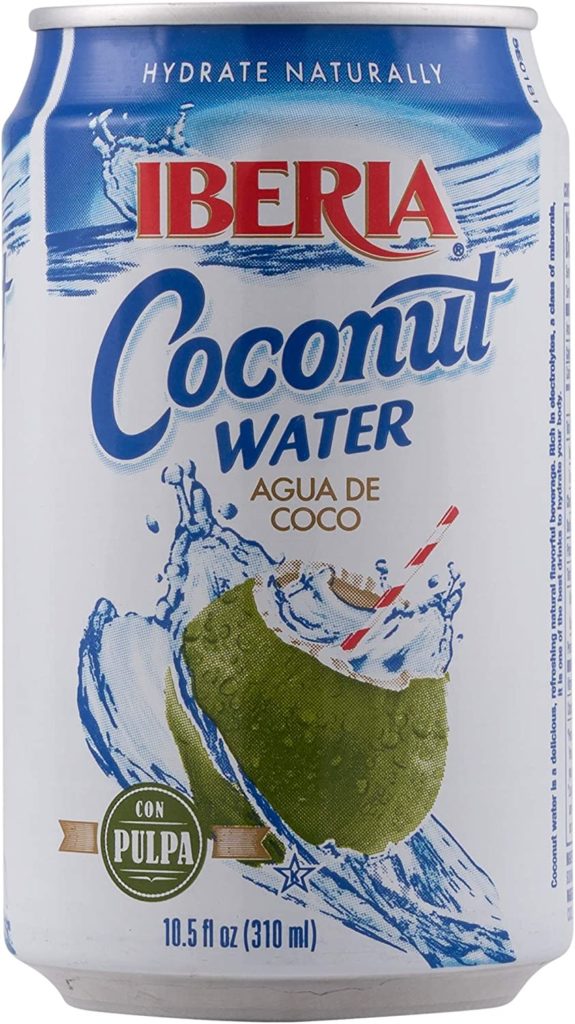Coconut water is the transparent liquid inside coconuts instead of coconut milk, a mixture of coconut water and grated coconut. Coconut water is low in sugar and calories and has a slightly sweet, nutty flavor. Electrolytes such as potassium, sodium, and magnesium, on the other hand, aid in restoring lost nutrients. That means it’s a nice drink to have after a workout or during a minor illness, though it may not be any better than water. Recent studies have also found that applying coconut water straight to your skin can help fight acne. However, the evidence isn’t conclusive.
Coconut Water Nutrition Facts
Coconut Water’s Health Benefits
Coconut water can be a healthy addition to your diet because it keeps you hydrated while low in calories, fats, and cholesterol. Before you open a bottle of coconut water, be sure you understand how it may impact people who have high blood pressure or other medical concerns.
Aids in Hydration
Coconut water is minimal in calories and carbs, equivalent to sports drinks that may contain added sugars and flavorings. Coconut water’s attraction is primarily due to potassium, sodium, and magnesium electrolytes. “Some studies indicate that it can aid with hydration primarily related to exercise because of the electrolytes,” Smith explains. However, Smith warns that those studies used sodium-enriched coconut water, which may not be a good choice for most people and should only be used by individuals who exercise for an hour or more.
Long workout sessions can be beneficial,” Smith explains. “However, the electrolytes in coconut water are different. In these instances, a sports drink is a safer bet.” A general rule is that for every pound of weight lost during activity, you should consume 20 ounces of fluid, whether it’s coconut water, a sports drink, or plain water. “The greatest way to hydrate is still water,” Smith explains.
High in Potassium
Most people do not get enough potassium in their diet, and the mineral aids in the removal of excess sodium from the body via urine. Coconut water may potentially aid in the reduction of blood pressure. According to preliminary studies, coconut water appears to lower blood pressure in those with high blood pressure.
However, if you use blood pressure medication, you should avoid coconut water since it may cause your blood pressure to drop too low. It’s advisable to talk to your doctor about it. Coconut water should also be avoided two weeks before surgery because of its high potassium content, impacting your blood pressure.
Low in Calories
Other fruit juices may include a lot of sugar, calories, and carbohydrates. Coconut water, on the other hand, is calorie-free, making it an excellent choice for individuals who enjoy sweet drinks. In 8 ounces, it has around 40 to 60 calories — about half the calories of orange juice,” Smith explains. “It can be part of a healthy diet if you like the taste.”
Free of Fat and Cholesterol
Coconut water is 94 percent water and contains no fat or cholesterol. “You want to choose an unsweetened one that doesn’t have extra sodium for recreational sipping,” Smith advises. She also advises checking the expiration date since the older coconut water becomes, the more nutrients it loses, and the flavor may change.
Kidney Stone Prevention
According to the National Institute of Diabetes and Digestive and Kidney Diseases, 11 percent of men and 6 percent of women in the United States will get kidney stones at some point in their lives. It is critical to stay hydrated to avoid them. Drinking coconut water as part of a balanced diet, according to Smith, can provide relief and help flush your system.
Coconut water boosted the elimination of potassium, chloride, and citrate in the urine, according to a 2018 study. Stones come in a variety of shapes and sizes,” Smith explains. “However, if your doctor advises you to increase your potassium intake, coconut water may be advantageous.”
Healthier Skin
According to a preliminary 2017 study, coconut water’s antibacterial qualities may help fight against acne. According to research, coconut water may also assist your antioxidant system by neutralizing the impacts of free radicals.
How Much Coconut Water should I Consume Daily?
There are no hard and fast rules concerning how much coconut water to drink. Those who drink it daily usually have one to two cups, while others only have one cup after a run instead of a conventional sports drink. It also contains some sugar by nature, and some brands add, even more, making it far from being a substitute for drinking water. Poon advises consuming no more than one to two cups of coconut water each day. When eaten as a drink, coconut water is LIKELY SAFE for most individuals.
Some people may experience fullness or stomach discomfort as a result of it. However, this is unusual. Coconut water can raise potassium levels in the bloodstream if consumed significantly. Is there any danger in consuming coconut water daily? You might be wondering if drinking coconut water every day is healthy. Coconut water is generally deemed safe to consume by the general public and provides a plentiful supply of natural electrolytes.
When is it Better to Consume Coconut Water?
It can benefit you if you drink it on an empty stomach first thing in the morning. Coconut water includes lauric acid, which helps increase immunity, jumpstart your metabolism, and aid weight loss. Coconut water is frequently suggested for pregnant women to combat dehydration and constipation. Coconut water, unlike many other drinks, does not have the best time, and it’s something you can do at any time of day or night.
Coconut water contains lauric acid, which enhances immunity and aids metabolism and weight loss. Drinking it first thing in the morning is a good idea. Coconut water can be consumed either on an empty stomach or alongside a meal combined with other beverages. If you don’t like the taste of coconut water, consider mixing it with sparkling water or incorporating it into smoothies. If you have chronic kidney disease or use an ACE inhibitor, be cautious because you must limit your potassium intake.
Is Coconut Water Beneficial to the Immune System?
Coconut water is high in nutrients and vitamins, including riboflavin, niacin, thiamin, pyridoxine, and folates, which can boost your immune system and help you fight viral infections like the flu. Coconut water helps flush toxins out of the body and dissolve kidney stones. It’s especially beneficial for those with renal illness because it’s a natural diuretic. It cleanses the urinary system and bladder channels so that you may feel healthier and more active after a week.
Drinking too much of it can cause your digestive system to become laxative. Because coconut water is a natural laxative, it may not be appropriate for some persons who have digestive difficulties. As a result, caution should be exercised before eating significant quantities of coconut water.
Is Coconut Water Safe for Diabetics?
Calcium, phosphorus, zinc, manganese, iron, copper, and necessary amino acids are also present. Coconut water is a good beverage for people with diabetes and is advantageous to one’s overall health. Yes, modest drinking of coconut water regularly can assist people with diabetes in maintaining their blood sugar levels. Coconut water, contrary to popular belief, does not raise blood sugar levels. It has a GI score of 54, indicating that it aids in the reduction of blood sugar levels in people with diabetes.
For people with diabetes, fresh coconut is an excellent nutritional alternative if consumed in moderation. If you don’t have any fresh coconut, a 2-inch square of dried coconut is comparable to 28-30 grams of fresh coconut. Avoid the stiff, added-sugar kind found in the baking department of your grocer.
Is Coconut Water Raise Cholesterol Levels?
Coconut water does not raise cholesterol levels, and it has roughly 60 calories per cup, so you will gain weight, just like any other fruit juice, if you drink too much of it. They also gave one group a lot of coconut water to drink (4 ml per 100 grams of body weight). The coconut water group saw a drop in cholesterol and triglyceride levels after 45 days, similar to the effects of a cholesterol-lowering statin medication.
As well as high blood pressure. Animal studies also suggest that coconut water may improve heart health by lowering cholesterol and preventing blood clots, though further research on people is needed. Coconut water administration reduces total cholesterol, VLDL + LDL cholesterol, and triglycerides while increasing high-density lipoprotein cholesterol.
Conclusion
Coconut water contains natural electrolytes. One cup, for example, has 600 milligrams (mg), or 16% of the daily potassium requirement (DV). Potassium is required for biological functions like kidney function and muscle contraction. Coconut water could be a healthy alternative to sports drinks such as Gatorade. While coconut water contains more potassium than other sports beverages, it contains less sodium, the most commonly lost electrolyte through sweat. It also has a lower carbohydrate content than many sports drinks. While it might not provide enough energy during strenuous or prolonged activity, it can help with rehydration afterward.




